Search
Search Results
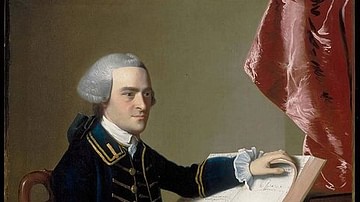
Definition
John Hancock
John Hancock (1737-1793) was a merchant, politician, and Founding Father of the United States, who helped lead the Patriot movement during the American Revolution (1765-1789). He served as president of the Second Continental Congress from...
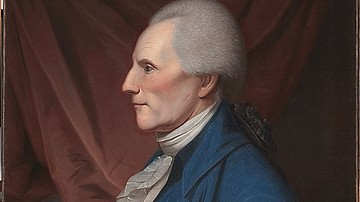
Definition
Richard Henry Lee
Richard Henry Lee (1732-1794) was an American politician from Virginia, who played a significant role in the American Revolution (1765-1789), particularly in the push for independence. A member of the prominent Lee family of Virginia, he...
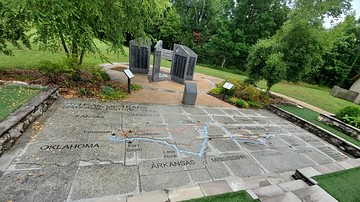
Article
A Soldier Recalls the Trail of Tears: John G. Burnett Account
John G. Burnett (b. 11 December 1810) was a private in the US Army in 1838 when he was ordered to act as interpreter between US officials and the Cherokee during the forced removal of Native Americans now known as the Trail of Tears. On his...
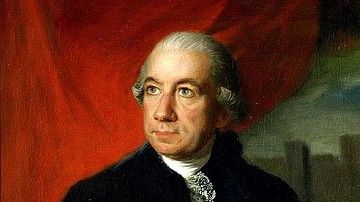
Definition
Henry Laurens
Henry Laurens (1724-1792) was an American statesman from South Carolina who played an important role in the politics of the American Revolution (1765-1789). He served as president of the Second Continental Congress from 1777-78 and presided...
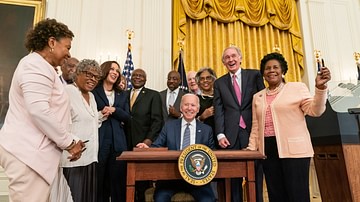
Article
Ten Juneteenth Myths
The celebration of Juneteenth – originally known as "Freedom Day" – began on 1 January 1866 in Texas and, since then, a number of myths have grown up around the event it commemorates: the issuance of General Order No. 3 in Galveston Texas...
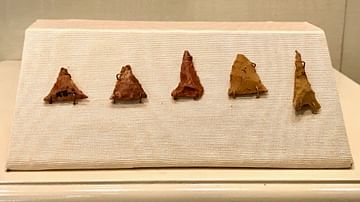
Image
Mississippian Culture Projectile Points
These stone projectile points date from c. 900-1540 CE and were made by members of the Mississippian culture, which flourished in what is now the United States from c. 900-1500 CE. This set of artifacts were curiously uncovered by the U.S...
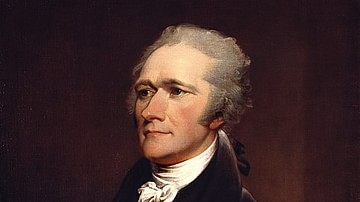
Definition
Alexander Hamilton
Alexander Hamilton (1755/57-1804) was a lawyer and politician, often recognized as a Founding Father of the United States. He served as George Washington's aide-de-camp during the American Revolution, before going on to become the first US...
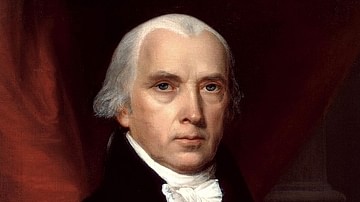
Definition
James Madison
James Madison (1751-1836) was a statesman, diplomat, and a Founding Father of the United States, who served as the fourth US president from 1809 to 1817. He played an important role in the drafting of the United States Constitution and the...
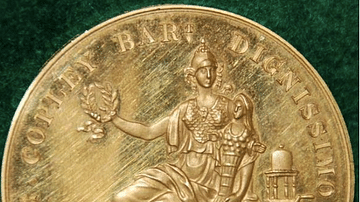
Article
The Foundation of the Royal Society
The Royal Society was founded in 1662 to promote scientific research and increase our knowledge of the natural world. With royal patronage and a stellar membership of great minds, the society quickly gained international recognition for its...
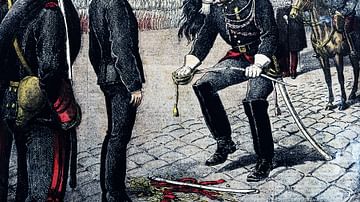
Article
The Dreyfus Affair & the Separation of Church and State in France
The Dreyfus Affair, or L'Affaire as it has become known, demonstrated the competing forces at work to either reestablish the monarchy and the Church in power or to solidify and advance the unfulfilled ideals of the 1789 French Revolution...